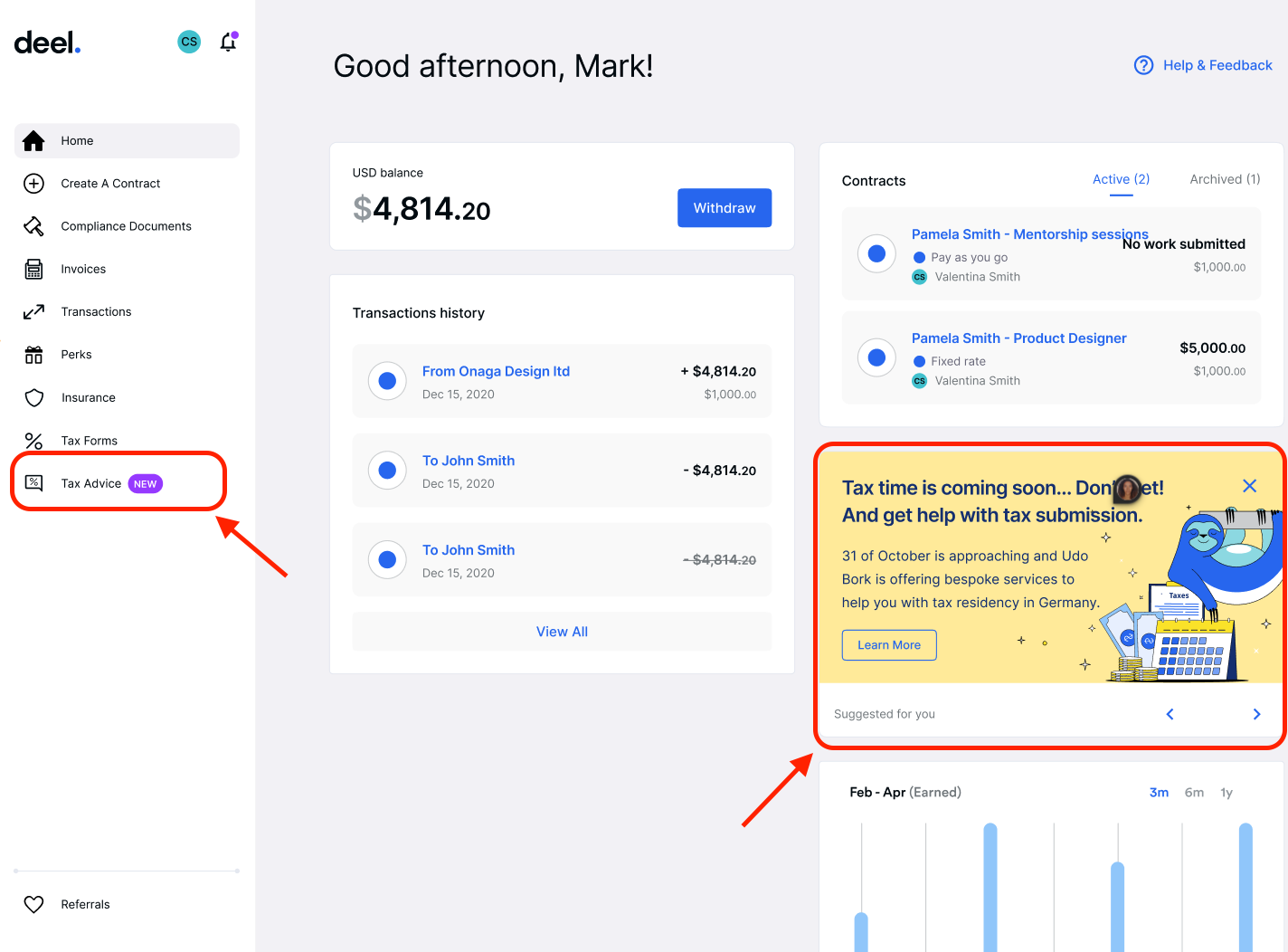Article
8 min read
Can Non-US Citizens Work for US Companies and Live Abroad?
Immigration

Author
Jemima Owen-Jones
Last Update
July 23, 2025

Key takeaways
- Non-US citizens can work remotely for a US company from their home country or anywhere in the world if they have consent from the hiring company, follow local visa laws, and pay taxes in their country of tax residence.
- Regardless of worker classification, all non-US citizens working for US companies and living outside the US will pay taxes in their country of tax residence, even if they travel or temporarily live abroad.
- Working as a contractor can often be a more suitable work classification for digital nomads as you can adapt your working schedule as you see fit, which can be helpful when traveling through time zones. It also frees the company from navigating different employee benefits and tax laws as you move from country to country.
Working remotely for an American company while living outside the US as a non-US citizen is totally viable. However, there are a few legal and logistical factors to be aware of to ensure you’re complying with foreign jurisdictions.
Let’s look at five areas digital nomads and non-US citizens living abroad should understand when pursuing a remote job with a US company.
1. Get consent from your employer and establish your worker classification
Not all companies are open to their international hires traveling and working remotely in another country. This may be an arbitrary preference of the US employers, or it may be for legal reasons.
You should share your desire to work remotely abroad early in the interview and hiring process. This will ensure you and the company are a good match for each other in advance. It will also give the company time to determine the appropriate worker classification.
Your worker classification is important when deciding to work remotely from another country as it will set out your working relationship with the US company.
The main two types of worker classifications are employees and independent contractors. When it comes to remote working while living abroad, working as an independent contractor has advantages.
Unlike full-time employees who must work according to a company-regulated schedule, independent contractors have much more freedom and independence over their work.
Countries each draw the line between contractor and employee in slightly different places. But generally, contractors decide how, when, and most importantly, where they complete a given project.
Should you decide one day to relocate to a country with an entirely different time zone, working as a contractor gives you the autonomy to adapt your working schedule as you see fit. This also frees the company from navigating different employee benefits and tax laws as you move from country to country.
If a US company already employs you, the employer could consider reclassifying you as an independent contractor. But be aware that the working relationship must also change to reflect this.
Suppose the company continues to treat you like an employee, such as controlling your work methods. In that case, the company will be subject to misclassification and could face penalties.
It’s also worth mentioning that independent contractors do not receive employee benefits and have different tax obligations to employees, which we will explain in the next section.
Employees are entitled to the same mandatory benefits they would receive in their home country.
Deel Mobility
2. File taxes with your country of tax residence and complete form W-8BEN when requested
Regardless of worker classification, all non-US citizens working for US companies will pay taxes in their country of tax residence, even if they’re traveling or temporarily abroad.
You only pay U.S. taxes if you earn US-sourced income while physically present in the country. If you work remotely from another country, your income isn’t US-sourced, thus, isn’t taxed in the US.
Both employees and contractors must pay taxes in their home country, which is typically determined by the 183 days taxation rule. This rule means a person residing in one country for over 183 days a year is considered a tax resident and should pay income taxes on their US-earned income.
Contractors are self-employed and must therefore file a self-assessment tax return to report their foreign-earned income to their local tax authority. Employees will have their taxes withheld and filed by the US employer to the employee’s local tax authority.
If you move around as a digital nomad, you pay taxes wherever you have the most residential ties. Depending on your worker status, you or your employer may need to file multiple tax returns if you qualify as a resident in multiple countries.
Local governments recommend that contractors continue to pay their social security contributions while living outside of their home country to ensure they receive benefit entitlements such as state pensions and unemployment allowances, depending on what their home country provides.
Avoid US tax implications with form W-8BEN
The company paying you may request that you complete form W-8BEN and submit it back to them to certify that your country of residence for tax purposes is not the United States. This form frees you from the requirement to file a US tax return with the Internal Revenue Service (IRS).
Once you file form W-8 BEN, this form is good for the next three years.
Independent contractors seeking professional tax advice can use Deel’s Tax Advice Marketplace on the Deel platform to get help from a qualified tax advisor.

3. Know the local visa and permit requirements before you travel
Before booking your flights, look into your chosen country’s unique visa requirements and permit regulations. Different countries and regions allow different lengths of stay and have specific eligibility criteria and requirements.
Apply for a tourist visa for short-term stays (90-180 days)
Many countries allow non-residents to work remotely for a maximum of 90 days or 180 days, depending on the country, without obtaining a work visa or sponsorship. This arrangement works well for those who choose to live the digital nomad lifestyle and are happy to move to a new country every few months.
Apply for a remote work visa for medium-term stays (6, 12, or 24 months)
If you hope to stay in one country for an extended period, you can choose from these countries that offer digital nomad visas. This type of visa has become especially popular following the pandemic as countries increase efforts to fill talent shortages and boost economies. Check each country’s conditions, application process, and costs before applying.
Apply for a work permit or residency permit for long-term and permanent stays
If you intend to live in a foreign country long-term as an expat, be aware of the local regulations as they vary between countries. Many countries require you to apply for the appropriate visa and, upon arrival, obtain a work permit or residency permit, depending on your nationality. Sometimes, these visas require sponsorship from your employer.
After a certain period, you may be able to apply for permanent resident status. At which point, the country becomes your new country of tax residence. If you are an independent contractor, you must fulfill the local tax obligations of this country. If you are an employee, you must inform your employer of your change in residency, as this will impact their corporate tax liability and compliance with employment laws.
Get visa and immigration support
One of the biggest obstacles when thinking about working abroad is the sheer effort and time it can take to get a proper work visa, especially since Digital Nomad visas are relatively new, and resources on it can be sparse. Immigration laws and processes also vary by country, making it time-consuming to find the correct visa for any specific situation – this process can be even trickier for digital nomads.
By connecting with Deel’s in-house team of experts, you’ll breeze through the digital nomad application process while getting dedicated advice specific to your personal needs as a remote worker.
Deel will handle the application process from start to finish, from completing the necessary forms to managing communication with authorities, so you can spend more time planning the beautiful sights you’ll see.
Schedule a free consultation today to get started.
4. Do not interact with the local market as a remote worker (unless permitted by the country)
Typically it is against local labor laws to interact with the local workforce or participate in “economic activities” as a remote worker for a US company. Activities include:
- Performing work for domestic subsidiaries or local employers
- Employing, soliciting, or contracting workers from the local labor force
- Providing services or selling goods to the local market
For example, suppose the company asks you to attend a networking event with local people, or you decide to outsource your work to a local freelancer. In that case, you have interacted with the local market and have participated in economic activities within that country.
If the local authorities catch you, they may revoke your visa and charge you with immigration fraud. This charge could waive any future visa applications or result in deportation.
Some countries, however, such as Canada, have included special clauses in their digital nomad visa programs that permit interaction with the local labor market.
Top tip: Request a Digital Nomad Policy from your hiring company that outlines which work activities are acceptable across borders and which aren’t.
5. Understand the different payment options
There are several dozen payment methods for getting paid as an international remote employee or contractor.
Payment options for nomadic employees
Employees can receive payment from their international employers, often through traditional direct deposit into their local bank account. However, if you plan to use your local bank card for transactions and ATM withdrawals abroad, depending on your bank, you’re likely to incur fees.
Consider depositing funds from your domestic bank account into digital banking platforms such as Paypal, Payoneer, Revolut, or Wise to avoid or reduce these fees. Depending on which neo-bank you choose, you may be able to convert your money into different currencies at the market rate with no premium on top and make international ATM withdrawals and transactions without excessive charges.
Payment options for nomadic contractors
Independent contractors can take advantage of more flexible payment options and have clients pay them directly into digital banking apps like the ones mentioned above. However, these aren’t available in every country.
Companies that partner with global payroll and payment providers, like Deel, can provide their contractors access to a special card that gives them immediate access to funds in a more stable spending currency without SWIFT fees. These preloaded cards are versatile because they work like a standard debit card, a nearly universally usable option.
Contractors can select their preferred payment method through the Deel platform, including bank transfers or popular digital payment platforms.
Embrace the digital nomad lifestyle with Deel Immigration
Whether you’re a remote worker trying to navigate the global workplace or a US company looking to hire or manage a remote international team, Deel can help.
Our global platform provides the following:
- Global hiring options
- Global payroll and payment options
- Visa and immigration support
- HR tools for global workforce management and engagement
- Equipment provisioning
- Flexible workspace memberships
- Misclassification protection for contractors
- Benefits administration
- Background checks
- Equity management
Want to learn more about how Deel works? Book a free consultation to get your questions answered.

Jemima is a nomadic writer, journalist, and digital marketer with a decade of experience crafting compelling B2B content for a global audience. She is a strong advocate for equal opportunities and is dedicated to shaping the future of work. At Deel, she specializes in thought-leadership content covering global mobility, cross-border compliance, and workplace culture topics.













